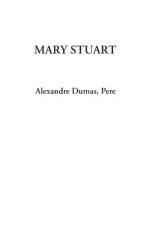The day following there was a second interrogatory, and great was his amazement when, on requesting that the one of the day before should be shown him, he was merely shown, according to custom in English law, counterfeit copies, in which were avowals compromising him as well as M. de Chateauneuf: he objected and protested, refused to answer or to sign anything further, and was taken back to the Tower with redoubled precaution, the object of which was the appearance of an important accusation.
Next day, M. de Chateauneuf was summoned before the queen, and there confronted with Stafford, who impudently maintained that he had treated of a plot with M. de Trappes and a certain prisoner for debt—a plot which aimed at nothing less than endangering the Queen’s life. M. de Chateauneuf defended himself with the warmth of indignation, but Elizabeth had too great an interest in being unconvinced even to attend to the evidence. She then said to M. de Chateauneuf that his character of ambassador alone prevented her having him arrested like his accomplice M. de Trappes; and immediately despatching, as she had promised, an ambassador to King Henry III, she charged him not to excuse her for the sentence which had just been pronounced and the death which must soon follow, but to accuse M. de Chateauneuf of having taken part in a plot of which the discovery alone had been able to decide her to consent to the death of the Queen of Scotland, certain as she was by experience, that so long as her enemy lived her existence would be hourly threatened.
On the same day, Elizabeth made haste to spread, not only in London, but also throughout England, the rumour of the fresh danger from which she had just escaped, so that, when, two days after the departure of the French envoys, the Scottish ambassadors, who, as one sees, had not used much speed, arrived, the queen answered them that their request came unseasonably, at a time when she had just had proof that, so long as Mary Stuart existed, her own (Elizabeth’s) life was in danger. Robert Melville wished to reply to this; but Elizabeth flew into a passion, saying that it was he, Melville, who had given the King of Scotland the bad advice to intercede for his mother, and that if she had such an adviser she would have him beheaded. To which Melville answered—
“That at the risk of his life he would never spare his master good advice; and that, on the contrary, he who would counsel a son to let his mother perish, would deserve to be beheaded.”
Upon this reply, Elizabeth ordered the Scotch envoys to withdrew, telling them that she would let them have her answer.




